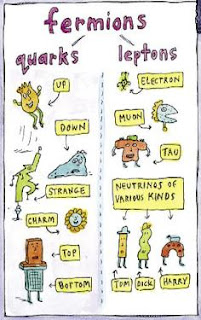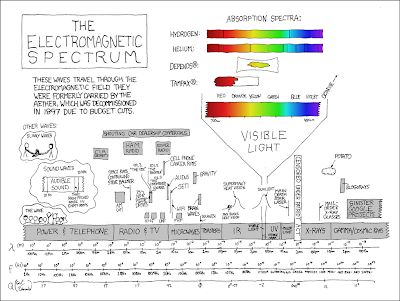Democrats take a lot of pride in their generally 'reality-based' approach to the important questions. For the most part, they should be proud of this. For the mainstream party line stuff on the war, global warming, stem cells, etc where the conservative view is fairly illogical or outright denialistic, this is definitely true. It seems a good number of Republican positions are based on what they would like to be true (see, again, Iraq, Global Warming, anything related to religious superstition), and are not particularly concerned with the balance of evidence. Looking at the most contentious issues of the day, it seems that disdain for scientific and rational thought is a problem exclusively of the right. But this is not so.
When it comes to actual politicians this is actually true. You won't see many Democratic presidential candidates proudly declaring their ignorance to the world by stating that they don't 'believe' in evolution. Nor will you hear them regurgitate talking points on how 'the Earth is getting warmer, but we don't know whether it is man-made. You know, there are temperature cycles...'
And yet, the liberal demographic is still home to more than their fair share of fringey elements. Take for example the fact that in response to the question "Do you think that George W. Bush knew about the attacks of 9/11 in advance?" 35% of Democrats answered yes, and 26% said they were not sure. Even given that this question could be misinterpreted to include that August 'Bin laden determined to strike within the US' memo, that is still at least around one fifth or one sixth of the these people subscribe to the abhorrent '9/11 Truth' conspiracy theory business. This is in no way a mainstream view among influential Dems (unlike how the view that Iraq is or was related to terrorism in some way before we invaded is among the GOP), but still too large a fraction of their supporters to be comfortable with. Few groups manage to blend quite the same amount of paranoia, irrational thinking, and general offensiveness than these people. Other than the obvious affront to decency that they represent, they also happen to be an affront to reasonableness.
Conspiratorial thinking itself is stupid enough, but the garbage these folks turn out to justify it is even worse. "The way Building 7 collapsed was just like a controlled demolition!" WTC Building 7 was a nearby office building that collapsed later that afternoon from fires started on its lower floors. Nobody was killed, but apparently, the completely pointless and unnoticed destruction of this building is evidence of a sinister plot. Better yet, one of the dumbest arguments ever for anything has to be the claim that fire could not have caused the buildings to collapse. In a news clip on the radio a while ago, I recall hearing undisputed, noted materials science expert Rosie O'Donnell stating vociferously "Miraculously, the first time in history, steel was melted by fire. It is physically impossible...To say that we don’t know that it imploded, that it was an implosion and a demolition, is beyond ignorant. Look at the films, get a physics expert here from Yale, from Harvard, pick the school—[the collapse] defies reason."
[Clearing throat] Let's pick Dartmouth, I'm no expert, but this isn't difficult. It is really more engineering, but actually is so simple that anyone with a rudimentary understanding of how materials work can understand this. How do you think they shape steel, genius? Ordinary fires that we encounter in our daily lives aren't hot enough to liquify steel, and neither are the ones that were ignited in the twin towers or this other building, but they don't have to melt it to make the building collapse. Just weaken it enough that the weight of the stories above it are more than the steel beams can support, which happens at around 400 degrees Fahrenheit. Remember Fahrenheit 451? That is the temperature of burning paper -- the towers were exposed to burning jet fuel, and who knows what the hell was burning in 7WTC. Either way, getting the beams up to that point, and probably much higher, is not an unlikely thing. In fact, it is what happened. Popular Mechanics has a more thorough and excellent debunking of this particular nonsense, and Penn & Teller have an excellently angry debunking of it in video form. (Quoth Penn "Wow! Did you do that hard-hitting data research...in your ass?!")
In any case, to get back to my original point, though these people are by no means spokesmen for the 'reality-based' party, they are definitely a non-negligible slice of their supporters. How are these people better than the assholes in the middle east (and some here) who still believe, by overwhelming margins, that a group of Arabs were not responsible for the 9/11 attacks? In fact, they are probably worse, since there is widespread misinformation in that part of the world on that issue, here we've been inundated with evidence for years. (This American Life had an interesting account from one such, shall we say, 'willfully misinformed individual' a few years ago, it's Act 1.) Whether or not it is good that these nuts are supporting the right people, it is not a good thing to be associated with them.
I had planned on diatribing on a few other things but this ended up being quite long enough, so I may make it a series instead to fulfill the destiny of blogs everywhere: eventual decent into semi-political rants.












